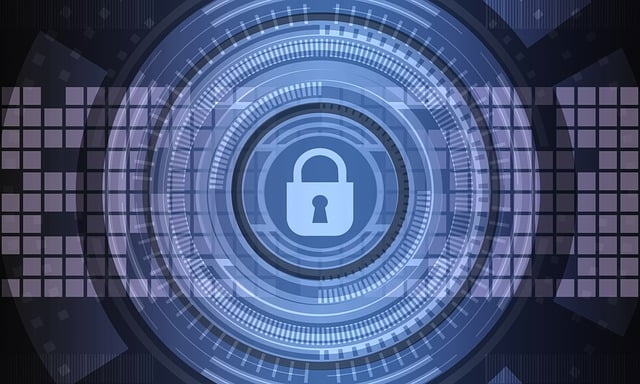Employee ID is more than just a number. With employee ID, you can do more than just identify someone. Learn more about what is Employee ID and in what cases, as an employer, you might want to use employee ID number.
What is Employee ID
An Employee ID, or employee identification number, is a unique identifier assigned to each individual within an organization. It serves as a critical component in managing employee-related data, from payroll to security.

This identifier, often a combination of numbers and letters, is used by the HR department, payroll, and IT department for various administrative and security purposes.
It’s distinct from an employer identification number, which is used for tax purposes by the Internal Revenue Service. Employee IDs are essential in large companies for maintaining accurate and organized employee records.
9 Reasons For Using Employee ID in Your Business
Implementing Employee IDs in a business offers numerous benefits, ranging from enhanced security to streamlined administrative processes. Here are nine compelling reasons to use Employee IDs in your organization.
Enhanced Security and Access Control
Employee IDs play a crucial role in enhancing security and access control within a company.
They serve as a secure method to uniquely identify each employee, reducing the risk of unauthorized access to sensitive information and company premises.

By integrating employee IDs with access systems, organizations can control who enters specific areas, ensuring that only authorized personnel have access.
This system not only secures the physical premises but also protects digital assets, as IDs can be used to manage login credentials and permissions for accessing company networks and data.
Streamlined Time and Attendance Tracking with Employee ID Number
Using employee IDs streamlines time and attendance tracking, a crucial aspect of HR management.
With an ID system, employees can easily clock in and out, allowing the HR department to accurately track working hours, overtime, and absences.

This process minimizes errors and mix-ups in recording attendance, ensuring that employees are paid correctly for their time.
Additionally, it simplifies the administration of payroll details, as the same number links an employee’s time records to their payroll number.
This integration reduces the administrative burden and risk of discrepancies in payroll processing.
Simplified Payroll Processing
Employee IDs greatly simplify payroll processing in businesses.
By assigning a unique employee ID number to each individual, the human resources department can efficiently manage payroll details.
This unique identifier links each employee’s profile, including their pay rate, national insurance, and tax information, directly to their payroll number.

The use of employee IDs minimizes errors and mix-ups in the payroll process, ensuring that employees are paid accurately and on time.
It also streamlines the administration of pay stubs, as each transaction is clearly associated with the specific employee’s ID, enhancing the efficiency and accuracy of the payroll system.
Improved Accountability and Transparency
The implementation of employee ID number process in a company enhances accountability and transparency within the organization.
An employee ID number serves as a unique identifier for each staff member, allowing for precise tracking of their actions and responsibilities.

This employee number system aids in monitoring the use of company resources, handling of sensitive information, and adherence to company policies. When combined with top OKR software, employee ID systems can also help track individual contributions to key objectives, aligning accountability with measurable business outcomes.
By having a clear record linked to each employee’s ID, employers can easily identify and address any discrepancies or issues, fostering a culture of responsibility and ethical conduct.
Additionally, this transparency is beneficial for both the employer and employees, as it clarifies expectations and contributions.
Easier Management of Employee Records
Employee IDs facilitate easier management of employee records in organizations.
Each employee is assigned a unique ID number, which becomes a central reference point for their entire employment lifecycle, from the date they were hired to their job role and department.

This unique number ensures that all records pertaining to a specific employee – whether it’s their address, social security numbers, or other personal information – are organized and easily accessible within the HR system.
This streamlined approach reduces the risk of data errors and ensures efficient management of employee information, making the HR department’s task of maintaining up-to-date and accurate employee records much more manageable.
Facilitation of Access to Company Services and Facilities
Employee IDs, often in the form of an ID card or employee code, significantly facilitate access to company services and facilities.
For security reasons, these IDs can be used to verify an employee’s identity before granting access to various parts of a building or sensitive areas within the company.

This system ensures that only authorized personnel obtain entry, maintaining the safety and security of the workplace.
Additionally, employee IDs can be integrated with company services like cafeterias or libraries, streamlining the process of using these facilities. The use of ID numbers and cards simplifies the management of access rights, making it easier for employees to utilize company resources and services efficiently.
Better Communication and Identification with Employee IDs
Employee IDs enhance communication and identification within a company.
By featuring the employee’s name, photo, employee code, and other information, these IDs help in quickly identifying colleagues, especially in larger organizations.
This is particularly useful in instances where employees from different departments interact or during company-wide events.

The use of employee IDs in a company directory also aids in locating specific employees and understanding their roles within the organization.
This system not only improves interpersonal communication among staff but also helps in establishing a more connected and cohesive workplace environment.
The clear identification provided by employee IDs can also make a significant difference in fostering a sense of belonging and community within the company.
Efficient Emergency Response and Safety Management with Employer Identification Number
Employee IDs are crucial for efficient emergency response and safety management in businesses.
In the instance of an emergency, employee ID numbers enable quick identification of employees, which is vital for headcounts and ensuring everyone’s safety.

This system allows emergency responders to easily access critical employee data, such as medical information or emergency contacts, linked to their employee profile.
Employers can use the ID system to account for all employees, identifying who is in the building and who is not, which can make a significant difference in emergency situations.
This efficient identification process helps in minimizing risks and ensuring a swift response during critical incidents.
Customized Access and Permissions for Sensitive Areas or Information
The use of employee IDs in companies allows for customized access and permissions, particularly for sensitive areas or information.
Each employee ID number can be programmed within the ID system to grant or restrict access to specific parts of a business, based on the employee’s job role and responsibilities.
This ensures that only authorized employees can access certain data or enter particular areas, safeguarding sensitive company information and assets.

For employers, this system provides a secure way to manage who has access to what, reducing the risk of data breaches or unauthorized entry.
It also helps in maintaining compliance with various privacy and security regulations, as access to confidential information is tightly controlled and monitored by any company name.
Key Takeaways on Employee ID
- Employee IDs streamline human resources processes, from payroll to personal data management.
- They enhance security by controlling access to sensitive company areas and information.
- Employee IDs improve efficiency in emergency situations, aiding in quick identification and response.
- Employee ID can facilitate better communication and identification within large businesses.
- Employee ID can play a key role in simplifying administrative tasks like attendance tracking.
- Employee ID is essential for ensuring accountability and transparency in the workplace.
- Customized access permissions linked to each employee’s ID safeguard against unauthorized data access.
Conclusion on Employee ID
Employee IDs are more than just identification tools; they are integral to the efficient and secure operation of a business.
From simplifying HR processes to enhancing workplace security, the use of employee IDs brings a structured and systematic approach to managing employees, ensuring that each individual is accurately identified and their access rights are appropriately managed.



